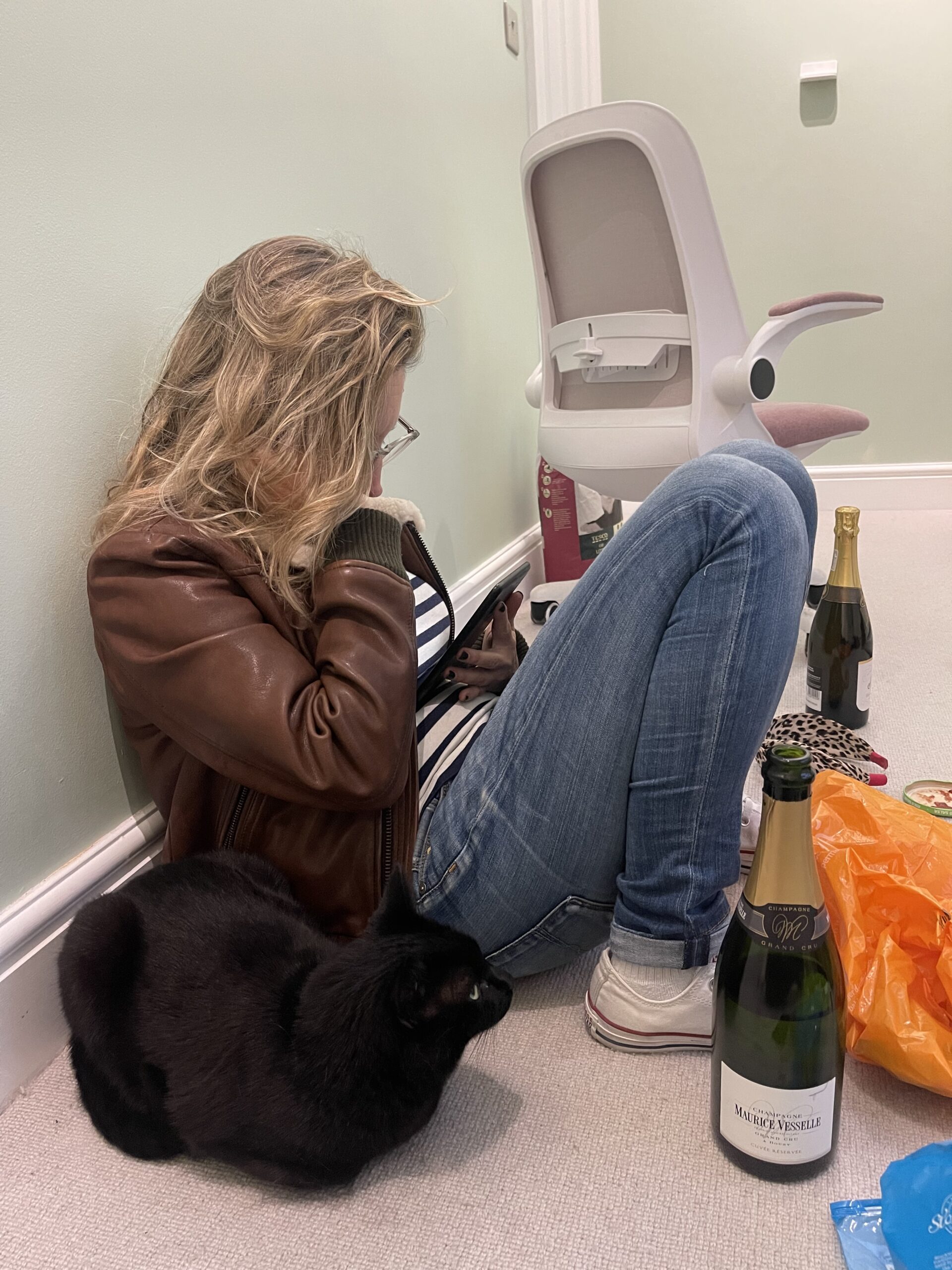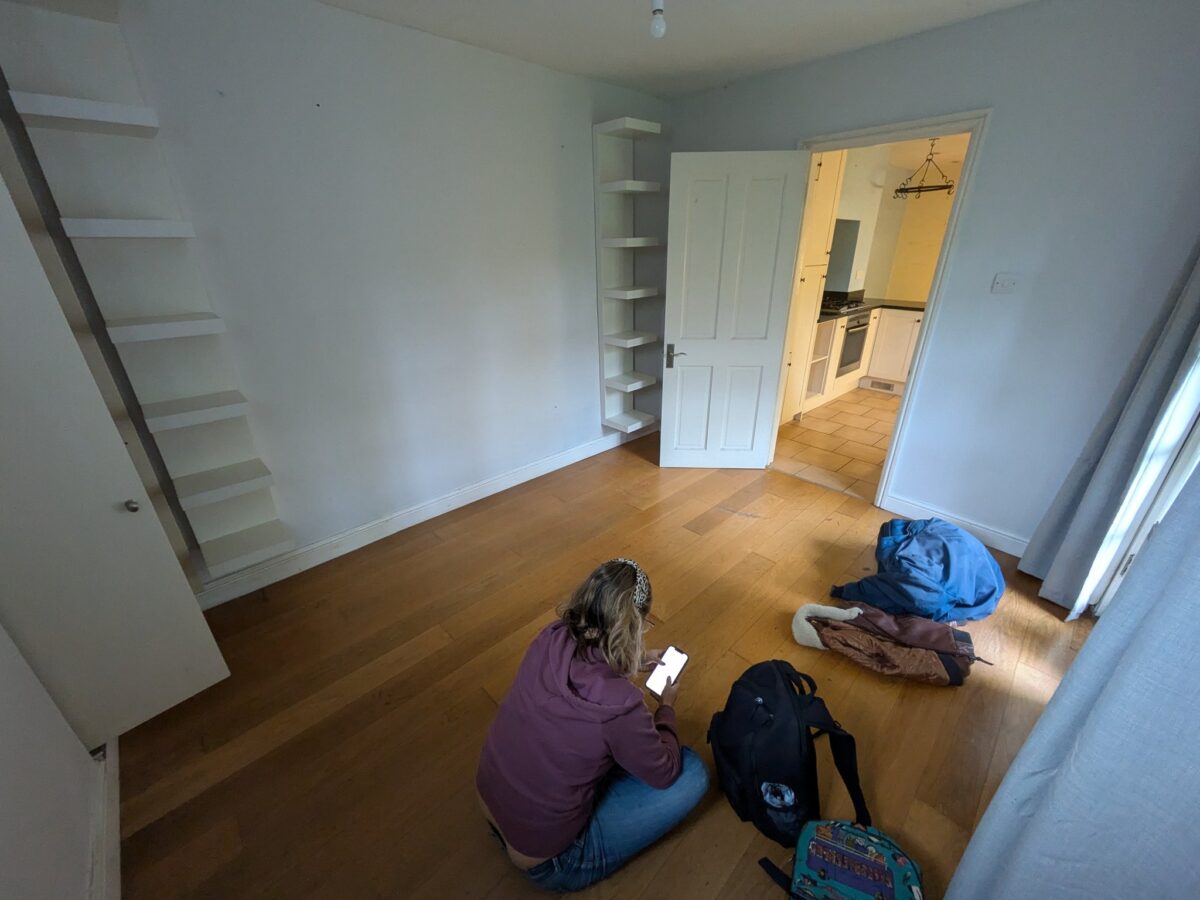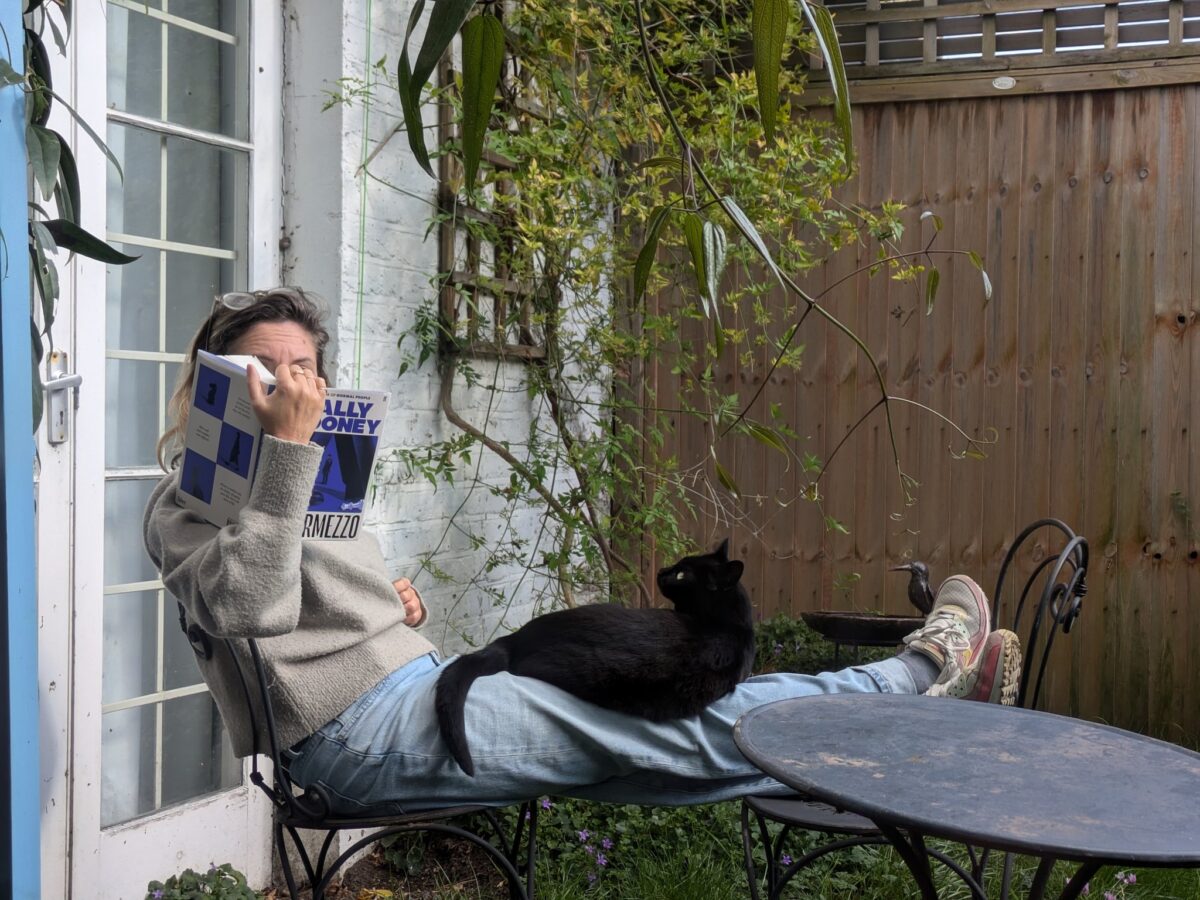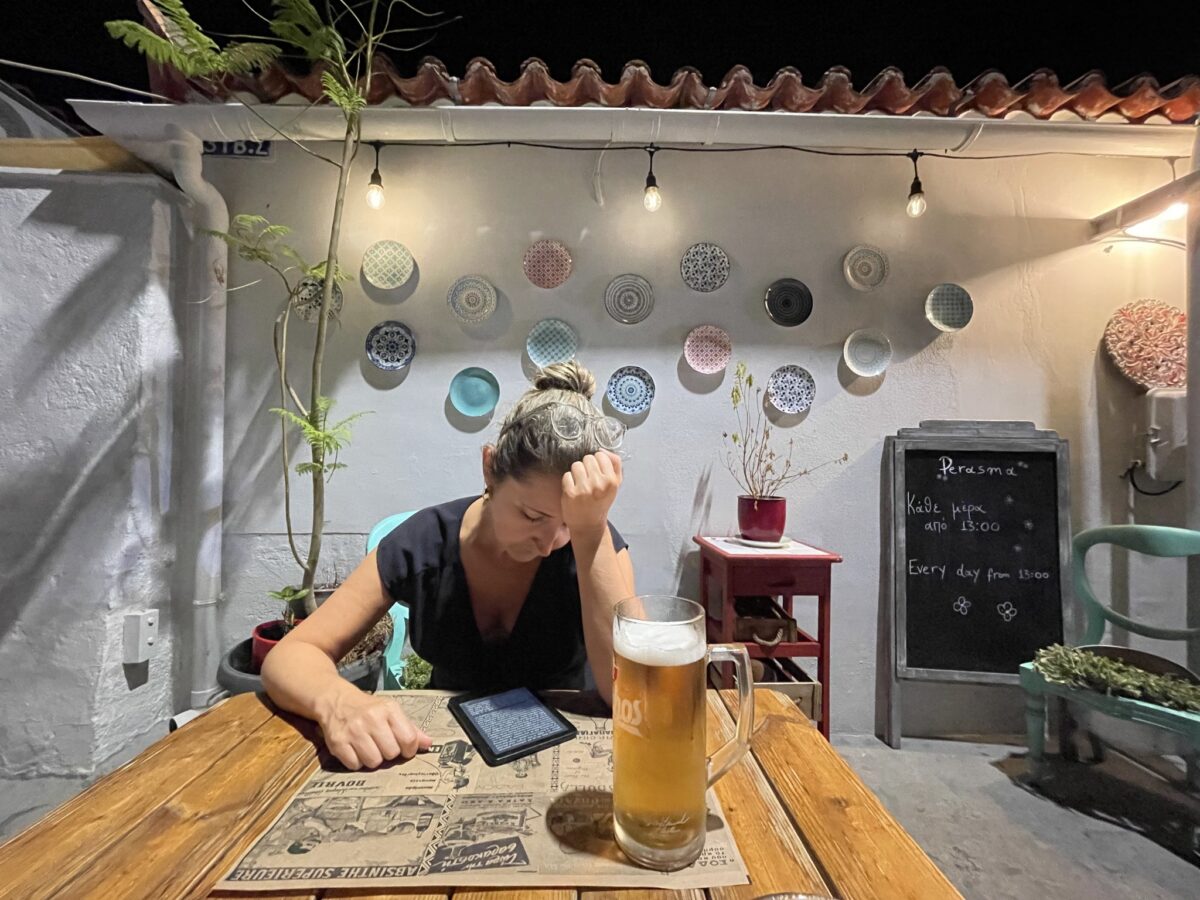The sub-title of this book is ‘LIFE ON A CULT TV SHOW WHILE ALSO IN AN ACTUAL CULT,’ which pretty much sums it up. If you watched ONE TREE HILL in the early 2000s, you will know this lady. Her story of how she got sucked into the cult is very compelling, because she really talks you through how gradual it is. I guess the point is, no one wakes up and decides ‘today I’ll join a cult.’ It really teaches you to be on your guard. I think the primary point they pushed was for her to not listen to herself, and her own judgement, but rather to god/the cult leader/her doubts. Once you have conceded that your opinion is unimportant, you are basically 90% of the way there. This poor woman had her life really wrecked. She talks about how she decided to be public – not just in the book, but in daily life – about being in a cult, and about how embarrassed she is that hers was not even one of the big, weird cults. She’s ashamed to have to say there was no KoolAid or judgement day. It was just a small, Bible-based group. But it did the business anyway. And it’s still out there in Idaho, ruining people’s lives.
Tag: Female writer
TOM LAKE by Ann Pratchett
I wanted to like this book because Pratchett is a good writer and it’s about productions of OUR TOWN, a play I love. I got about 200 pages in but I just had to quit. The story is set on a cherry farm, and involves this woman telling her three grown daughters the story of her early life, in which she considered being an actress and dated someone who went on to be a movie star. I don’t like books where we have to believe someone is telling someone else a book length anecdote, but okay, I was willing to get past it (see HEART OF DARKNESS and etc). I even enjoyed the flashback parts where she was young and dumb. But the current-day parts were so gruellingly annoying I just couldn’t. It was a really creepy, the nuclear-family-is-all-there-is, the mother-wants-to-eat-her-young, kind of vibe. At one point, the woman is saying how she allows her eldest daughter to have her phone on at the dinner table in case she has to go deal with an emergency, as she is a veterinarian. However, she proudly tells us: “My husband and I turn off our phones because everyone we want to talk to is here.”
VOM! That was when I put it down. My blog tells me I had an equally violent reaction to Pratchett’s BEL CANTO. I’m not sure if there is something wrong with me or with Pratchett.
WILD by Cheryl Strayed
For some reason I thought this was going to be kind of cheesy – maybe because it was made into a movie that was marketed as ‘inspiring’? – but in fact I did find it kind of inspiring.
It tells the true story of a woman in her 20s whose life has spiralled since her mother’s death, with divorce, heroin usage, and etc. She therefore decides to walk thousands of miles along the Pacific Crest Trail, which goes up the West Coast of the US, from Mexico to Canada. She is ill prepared; she does not try out her pack before she begins, and once there finds out she cannot even lift it off the floor. She gets stronger as she goes along, losing 6 of her 10 toenails to the trail. She comes across coyotes, elks, and bears multiple times. She is threatened with sexual assault, but only the once, which is I think surprisingly good going for 3 months on your own, even if it is in the wilderness.
I was especially struck by how distant the 1990s felt. She does not have a phone, which seemed to me incredibly and impossibly lonely. I don’t know this surprises me so much: I was an adult before I had a phone myself, and I don’t remember being lonely without it.
I guess there is some deep evolutionary drive behind the long walk, because so many human societies have sanctioned it with the idea of a pilgrimage. It was interesting to read this very personal, spontaneous version of this idea, and to see how, toenails aside, it helped this lady get a handle on her life.
INTERMEZZO by Sally Rooney
I am a mega-fan of Rooney’s first book, CONVERSATIONS WITH FRIENDS, which is one of the handful of books I have ever read twice in a row. I have been less of a fan of her other books, and especially of the last one BEAUTIFUL WORLD, WHERE ARE YOU? Much of what I enjoyed about the first one was the comic and contemporary spirit, and as we went along I felt we were getting more and more miserable. This one is a return to form. It tells the story a pair of brothers and their various romantic entanglements, and is exceedingly more-ish. I enjoyed it a lot, especially the journey of one character who has to slowly give up his implicit assumption that he is and can be ‘normal,’ which I found to be quite liberating.
My only issue with it was tbh a bit of a political one. In all Rooney’s books there is a strong perspective that anyone who works in any area of commerce is obviously some kind of sad, dead-eyed zombie in slave to our capitalist masters. Apparently the only acceptable professions are like lawyer, journalist, arts administrator. You can work as e.g., a barista, but only if you feel utterly polluted by it. I just find this bizarrely decadent. As if any of these delightful professions would exist without this economic model. Talk about biting the hand that feeds you.
THE MARS ROOM by Rachel Kushner
This is a very more-ish story about a woman serving a life sentence in an American jail. It was very absorbing, and very deeply researched. Here, for example, is the recipe for prison alcohol “. . . juice boxes poured into a plastic bag and mixed with ketchup packets, as sugar. A sock stuffed with bread, the yeast, was placed in the bag for several days of fermentation.” Good to know.
Somehow how though it left me curiously unmoved. Maybe because I have recently read some really toe-curlingly magnificent memoirs from actual prisoners – e.g., SOLITARY by Albert Woodfox, which tells of his forty years in solitary confinement in Louisiana. It somehow made it hard for me to take this fictional version seriously, which is strange, because I usually find fiction much more compelling than fact.
THE STRANGER AT THE WEDDING by AE Gauntlett
I thought it would be fun to read a kind of more-ish thriller while on the beach. I kind of got where it was going, it was sort of GONE GIRLy, but it wasn’t for me. But I finished it anyway, because the sun was hot and the beer was cold.
LITTLE BASTARDS by Mildred Kadish
Here is a book about growing up on an Iowa farm in the Great Depression. The New York Times put this on its notable books list of 2007 (I’m going in order from 2000 through those lists, truly I am desperate for something to read), but myself I had to quit half way through. Essentially the author tells us about all the cooking and cleaning and farming stuff that happened on a farm in the 1930s. You’d think it would be interesting: but no. Though I will include this snippet:
“When one of us kids received a scratch, cut, or puncture, we didn’t run to the house to be taken care of. Nobody would have been interested. We just went to the barn or the corncrib, found a spiderweb, and wrapped the stretchy filament around the wound.”
Yikes. There’s given children independence and then there is germs.
TOWELHEAD by Alicia Erian
I was really impressed by this one. It’s a coming-of-age story which, despite the title, is far more about sex than about race. A woman decides her boyfriend is too interested in her 13 year old daughter. Rather than dump the boyfriend, she sends the girl to live across the country with her ex-husband. There, she gets very into masturbating and then SPOILER ALERT is raped by the 37 year old man next door.
What makes it successful is that nothing here is black-and-white. For example, the father, despite he sometimes hits the girl, is somehow not portrayed as a monster. The girl thinks she has a crush on the man next door, even after the assault. It sounds bleak, and it is, but it is also not. You’d think this girl is a victim (because she is), but somehow, triumphantly, despite these very bad things that happen to her, she retains agency and energy. I don’t quite know how to describe it, somehow it was a fundamentally hopeful book. I guess you’d have to read it.
PRAIRIE FIRES: THE AMERICAN DREAMS OF LAURA INGALLS WILDER by Caroline Fraser
Here is a life of Laura Ingalls Wilder, who wrote LITTLE HOUSE ON THE PRAIRIE. First thing I’m going to say is, there’s a lot of encouragement here for late bloomers. She wrote that book, and the six others, all in her 60s, with little previous writing experience. What I found particularly interesting was that they are all – to some extent, and the extent is quite contested – auto-biographical stories, covering her life up to about age 20. She wrote the books in part to make money, and in part because she was driven to.
She had a real yearning to keep her parents and her childhood alive. It was so bad that at night she often could not sleep, because the memories were coming back to her so thick and fast. I guess it makes sense, as you get older, this desire to make it all mean something. I find it quite touching, that apparently today you can go to various museums and see things like ‘Pa’s fiddle,’ and ‘Carrie’s sampler.’ How incredible: this low income, rural woman of the early 1900s has managed to immortalize her ordinary family.
I think one reason she felt such a need to hold onto the past was down to how quickly it was changing in her own lifetime. Her father was one of those who went out to ‘settle’ the West, so she had a front row seat to what that meant for the native Americans, and lived to see the prairies ploughed under and highways built. I knew that frontier life was hard, and that very few settlers managed to stay on the land for the five years needed to ‘claim’ it. But what astounded me was to learn that even in the early 1900s the government meterologists warned repeatedly that the prairies were too dry for small scale farming, and that only cattle would really work. But the railways still pushed this dream on people. It is just wild to think of the myth of the noble frontiersman and include in that the fact that he was basically being snookered by big business. Wilder’s family had a terrible time. If it was not droughts, it was locusts (as many as a trillion individuals in one particular swam). And once they had ploughed up the prairie, and taken the top soil that took thousands of years to develop, then there came the dust. Apparently carts would go past with ‘In god we trusted in Kansas we busted,’ on the side, and ‘shack-whacky’ was a well known term for the mental health crises that were common in this difficult environment. The only real solution was co-operative irrigation and government bailouts, which is yet another layer to the myth of the frontier.
I can’t even get into her daughter, who was another whole topic, an early journalist who travelled the world, a depressive, and eventually a anti-Semitic libertarian. A great book, it made me think about a ton of different topics.
AN HONEST WOMAN: A MEMOIR OF LOVE AND SEX WORK by Charlotte Shane
Here is some non-fiction about being a sex worker. What I really can’t get is the cover: it’s a sexy pair of female lips. What? Who agreed to this image, which to me at least is both cheesy and reductive?
For a book all about the author’s experience, I felt I learnt curiously little about the author. For example, it’s not clear why she gets into ‘full service,’ For a relatively well-off, well-educated person, it’s an unusual career choice, being simultaneously high-risk and repetitive, but we don’t hear too much about it. Mostly, she seems to have enjoyed the validation of being sexually desired by so many.
Another example is her relationship with her main client, who was about half her income. She tells us a lot about him, including that she would not have spent time with him for free ‘either platonically or sexually,’ but still, she is greatly upset by his death.
Of most interest to me was her time in high school. She becomes enamoured of a group of kids at neighbouring school, and especially of the boys:
“My objective as a teenagers was to find the boys, to link up with them because they were the party, they were the event. Years passed, and the objective stayed the same, with the focus shifted to sanction my own creativity: find boys to make a band, find boys to make a movie – find boys because they’d supply the verbs that would propel my life. It wasn’t just that they were necessary for sex or romance, though they were for me. More than that, they were the only means of getting at all that life has to offer. . . . A woman’s life is fundamentally inert, no matter how busy or accomplished a woman might be because that the nature of an object, even important or well travelled objects like the Hope Diamond or the Olympic Torch . . . I could fling myself into a situation like a skydiver jumping from a plane, but in my mind, I couldn’t forment the situation on my own . . .”
Unpleasantly, I sort of recognize this problem from my own adolescence, and I don’t think I’ve ever seen it described so clearly before.










